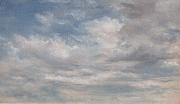
Oil On
Canvas, Real Flavor of Old Masters
|
John Constable
|
|||
|
|
|||
| 1776-1837 British John Constable Locations 1837). English painter and draughtsman. His range and aspirations were less extensive than those of his contemporary J. M. W. Turner, but these two artists have traditionally been linked as the giants of early 19th-century British landscape painting and isolated from the many other artists practising landscape at a time when it was unprecedentedly popular. Constable has often been defined as the great naturalist and deliberately presented himself thus in his correspondence, although his stylistic variety indicates an instability in his perception of what constituted nature. He has also been characterized as having painted only the places he knew intimately, which other artists tended to pass by. While the exclusivity of Constable approach is indisputable, his concern with local scenery was not unique, being shared by the contemporary Norwich artists. By beginning to sketch in oil from nature seriously in 1808, he also conformed with the practice of artists such as Thomas Christopher Hofland (1777-1843), William Alfred Delamotte, Turner and, particularly, the pupils of John Linnell. Turner shared his commitment to establishing landscape as the equal of history painting, despite widespread disbelief in this notion. Nevertheless, although Constable was less singular than he might have liked people to believe, his single-mindedness in portraying so limited a range of sites was unique, and the brilliance of his oil sketching unprecedented, while none of his contemporaries was producing pictures resembling The Haywain (1821; London, N.G.) or the Leaping Horse (1825; London, RA). This very singularity was characteristic of British artists at a time when members of most occupations were stressing their individuality in the context of a rapidly developing capitalist economy | |||
|
|
|||
|
|
Clouds new9/John Constable-424836.jpg Painting ID:: 33103 Visit European Gallery |
mk82 5 September 1822 | |
Height Width |
INS/CM |
||
|
X |
|
||
|
|
|||







